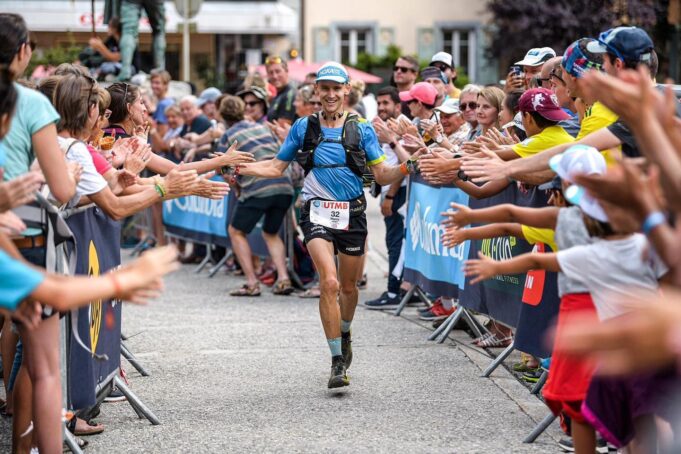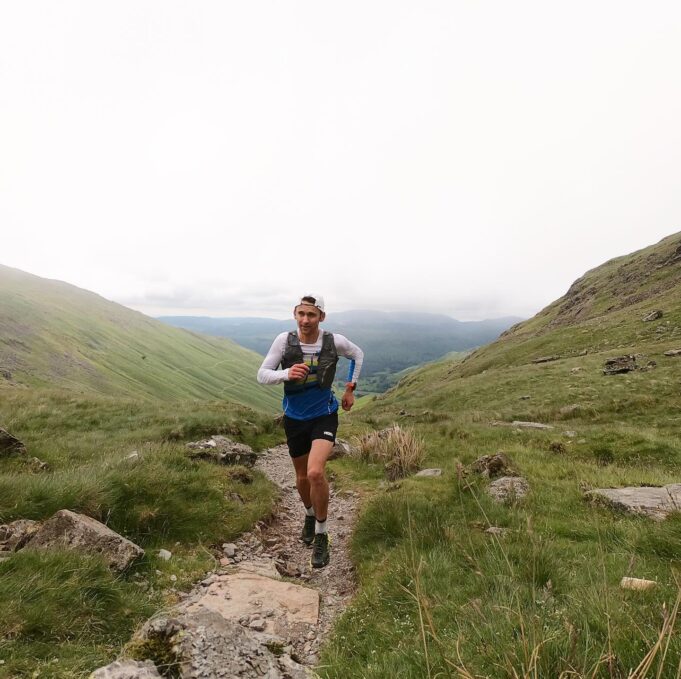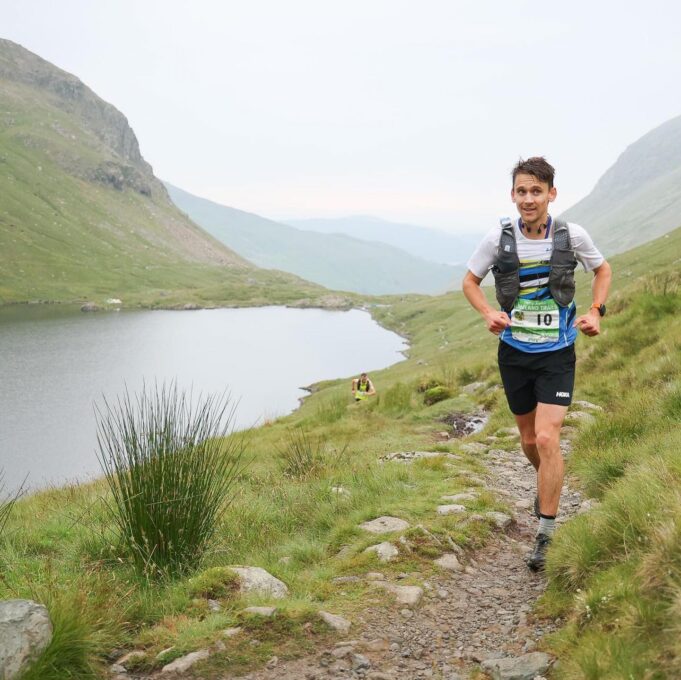Harry Jones has competed in 18 100k+ races and finished on the podium in 9 of them. His running journey began on the track as a school kid. Here, he tells us about training, the value of coaching and how he draws on his BSc in Sport Biomedicine & Nutrition for his fueling.


We know you were a track runner as a kid. How much was running part of your life then and what were your best times?
Since I found running I was hooked. I always had endless energy and played in many sports, running was another opportunity to find something to channel that energy into. I mainly focused on 1500m on track and my PR was 3:53.
Your ultra running journey began when you moved to Thailand in 2013. What made you take to the trails?
By that point I hadn’t raced for years and was just running now and again for fitness. When I started running on the trails it opened up another side to running that felt far more natural and exciting than running track ever had. In the mountains every run would be an adventure and I kept going further and further.
Besides getting healthy and active, what benefits do you think long distance running brings to people?
A huge aspect has to be your mental health, everything feels better after a run, anything that was stressing you out, might still be stressing you out, but for sure you’ll feel much better about it. Not to mention the huge sense of accomplishment when you reach a milestone or big goal, whether in a race or training. Seeing your hard work paying off is a great feeling.
You have a BSc in Sport Biomedicine & Nutrition. What impact has that had on your everyday nutrition for ultra running?
A lot! For a long time I’ve seen the difference that good nutrition habits have on my performance and it’s great to see more people are starting to understand the importance and huge effect diet has on your performance and overall health.
Since I started Ultra running I also started eating a vegan/plant based diet. Recovery improved which led to being able to sustain higher levels of training than I ever had. But I know that a plant-based diet isn’t necessarily something everyone is keen to try, but some simple principles, like increasing whole foods in your diet (more fresh fruits, vegetables, brown rice, legumes, potatoes, whole grains etc) and reducing processed foods is a good place to start.


And does it inform your pre-race and race day nutrition strategy?
Timing your meals ahead of a race can be important and focusing on foods that are easier on the stomach and digestion is important. My pre race nutrition is pretty similar to my day to day eating. Typically I’ll have my last meal 2 – 3 hours ahead of the race, if it’s a morning start I’ll have porridge with banana, if it’s an evening start it will likely be rice or pasta with some sauce.
You are also a running coach. Do you have any main guiding principles / philosophies for your coaching practice?
You have to listen to the runner and understand their lifestyle, day to day routines and pressures outside of running to be able to structure their training most effectively. You can plan the ‘best’ training schedule for a runner to peak for a race, but if it doesn’t work with the demands of their day to day life then it won’t work. Sustainable growth is key.
Do you also use a coach yourself? What benefits does that bring?
Yes, a few months back I started working with my coach Martin Cox. Up to this year I’ve been self coached and I’ve had some good results, but having someone like Martin scheduling my training keeps me accountable, organised and focused with my training. Putting the hard work in at the right time in the training cycle, whilst also making sure I have periods of lower volume, gives the body the time to rebuild and grow.
What have been your proudest achievements as a coach?
It’s impossible to give just one. Some of the best moments have been seeing runners achieve big goals like running UTMB after working with them through the whole process of building their race experience and qualifying points over the years to finally see them lining up on the start line. But I’m always proud when I see a runner achieve their goal no matter how big or small.


Do you still use track running style training for ultras? If so, what sessions?
Not so much at the moment, but I have in the past. Training for races like Tarawera and HK100 which have fast sections of racing. I’d do shorter 1km intervals or Tempo sets, something like 4 x 3km.
Did your previous track speed quickly translate to results on the trails, or did it take time?
The foundation of fitness and discipline through all my training for the track, helped me to find my potential on the trails once the legs got stronger in the mountains and through consistent training.
You’re now back in Wales – what are you missing about the South East Asia running scene?
The enthusiasm of the community and the incredible trails and landscape. You never know what’s waiting for you around the next bend of a South East Asian trail race, an incredible view, dense jungle, exciting wildlife or mountain top village full of excited locals.
Lastly, once you are able to get back to Thailand, what plans do you have, and would you like to get across to Vietnam for the VMM… maybe the 100 miles or 100k?
Hopefully I’ll be back in Thailand early next year for the World trail running championships if I’m selected for the GB team. If not I’ll be back soon enough to run or race in the Thai mountains. The VMM race series is one that I’d love to check. After all my years in Thailand I never made it to Vietnam, so I’m sure when I do I’ll get on the start for VMM.
You can learn more about Harry on his own website here.
To read more interviews with runners, see our Q and A archive here.



